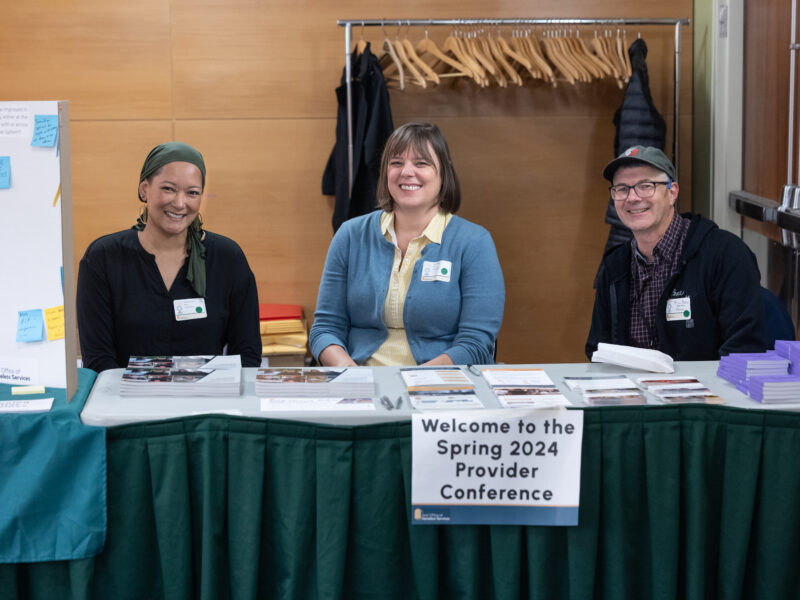Wednesday, May 29 at Portland State University
Spring 2024 Provider Conference
Thank you to everyone who was able to attend this event, either as a presenter, helper or participant. You all helped make our first in-person conference a success.
Below you will find presentation slides and notes for each of the sessions. Additionally, please see the evaluations for the overall conference and for each session. Special thanks to the 62 attendees that completed the post-conference evaluation.
Please contact Bill Boyd (bill.boyd@multco.us) if you had additional feedback to offer, or if you would like to be involved with planning future conferences.
Helpful Tips & Resources
Conference Guide
Here is the conference Schedule At A Glance and the Overall Evaluation of the conference
9:00 a.m. to 10:00 a.m.
Welcome Opening
A welcoming session for all conference attendees.
Homelessness Response System
The Homelessness Response Action Plan: Renewing our Community Response to Homelessness
Multnomah County Chair Jessica Vega Pederson and Portland Mayor Ted Wheeler on March 11, 2024, unveiled a strategic reset of the community’s response to homelessness to house or shelter roughly 2,700 more people living outside over the next two years.
The Homelessness Response Action Plan is a path to provide expanded access to the range of services someone needs to leave homelessness or never have to experience it in the first place. The plan commits to pursuing detailed goals and metrics; more transparent budgeting, data sharing and financial reporting; and a new governance structure that broadens and unifies the work of addressing homelessness and its root causes, formalizing collaboration between healthcare partners, the justice system, housing providers, service providers, treatment providers and government partners at all levels.
Join the Interim Director of the Homelessness Response System to learn more about the plan and engage in conversation about how it might shape our shared work moving forward.
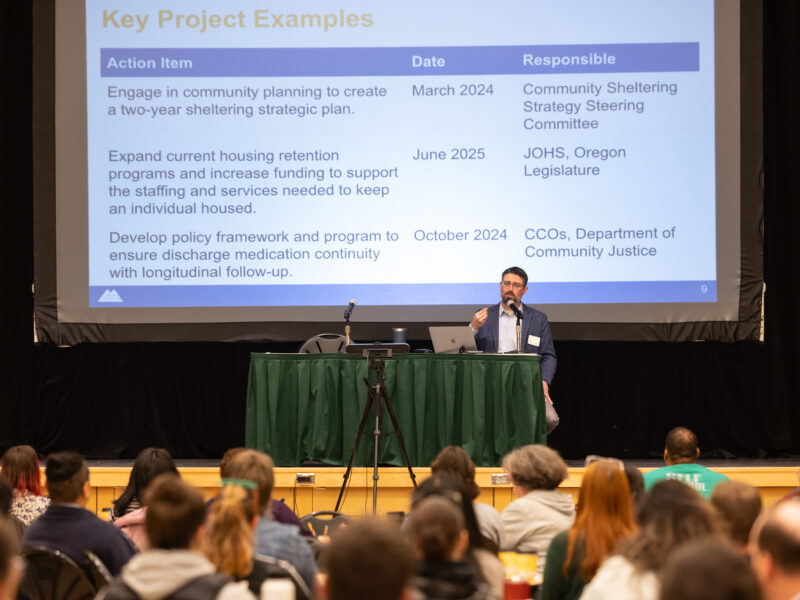
10:15 a.m. to 11:45 a.m.
First Sessions
HealthShare and Central City Concern
A Perfect Storm: SUD, psychosis and housing insecurity. HealthShare’s ecosystem data analysis
There is a perfect storm of intersecting crises including substance use disorder, psychosis, and housing insecurity happening in our region. Health Share of Oregon is conducting an ongoing retrospective analysis of the Medicaid claims database to understand the size, scope and scale of the substance use disorders and severe behavioral health challenges impacting the Medicaid population and our broader community.
This data provides perspective on population cohort growth, cost, service utilization and engagement which is compelling and provides an historically unique perspective for our region and state. This work has spurred Health Share and partners to think about opportunities to expand and scale effective models of care for this population. Exploring opportunities for improving outcomes through existing housing programs and infrastructure, aligning efforts between housing and health care sectors in service to this population, and better navigation between housing and health care is important work that lies ahead.
This session involves sharing the data, current plans for model expansion in the region, and a conversation about opportunities to align across the health and housing sectors.
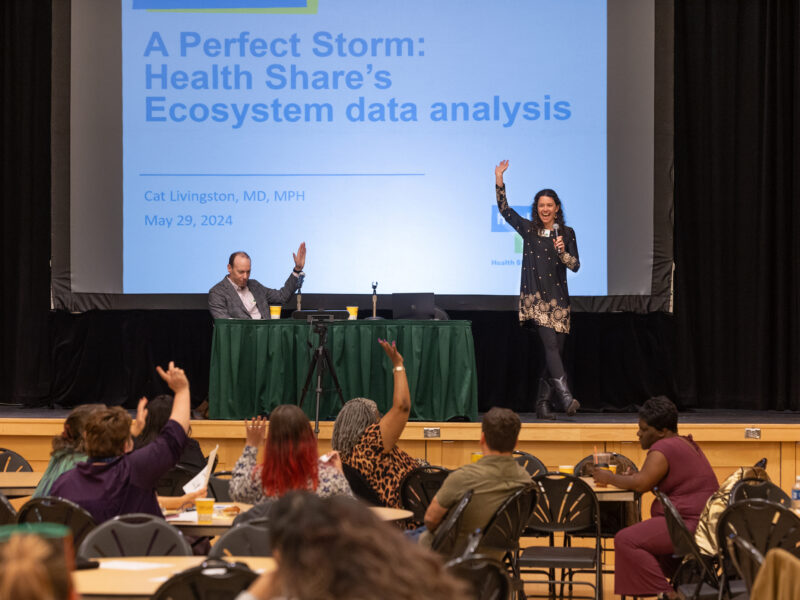
Metropolitan Public Defender
Barriers to Housing: Criminal Records, Eviction Records, Debt
This session is divided into two parts:
1) A description of the legal services available to JOHS service users to increase housing opportunities (including things like landlord debt settlement, eviction expungement, criminal record expungement, felony reductions etc…)
2) Solicits feedback from JOHS providers on what additional legal barriers exist for JOHS service users, what additional legal services are needed to open up housing, how to reach all partner organizations and more.
While all providers are welcome, providers of the Youth, Domestic Violence and Family systems are particularly invited to attend since referral rates are lower among those systems. The session ideally results in improved collaboration between MPD and providers, increased referrals from the Youth, Domestic Violence and Family systems, as well as feedback from all systems on how to make this a more productive partnership, so that we get homeless service users housed.
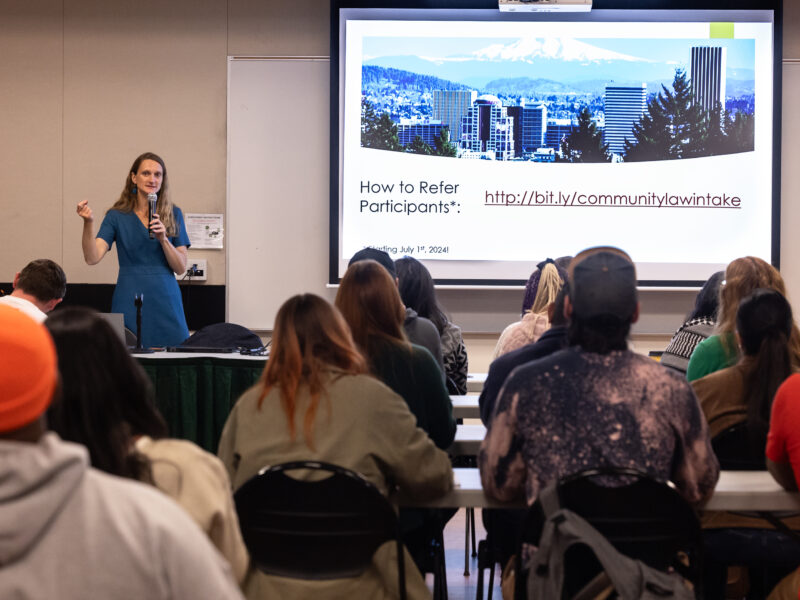
Northwest Pilot Project and Joint Office of Homeless Services
Housing / Health Care Integration and Medicaid 1115 Waiver
This session will share some high level information on the 1115 Medicaid Waiver Health Related Social Needs (HRSN) Benefits (https://www.oregon.gov/oha/hsd/medicaid-policy/pages/waiver-renewal.aspx), in particular the Housing Benefits. We’ll review timelines, benefit packages and other crucial details, including the opportunities and risks with utilizing these funds.
The session will also touch on some strategies to coordinate Housing and Healthcare needs, such as medical case conferencing, with one provider sharing how it has approached this issue. The second half of the session will include time for brainstorming and Q&A.
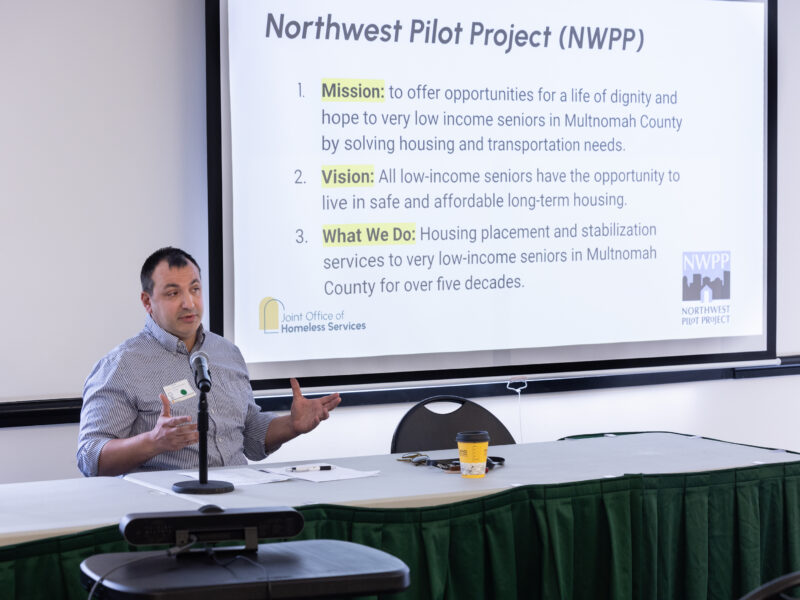
12:00p.m. to 1:00p.m.
Lunch
1:00 p.m. to 2:30 p.m.
Second Sessions
Multi-Agency Panel Presentation and Q&A
Working with Asylum Seeking Households
Homeless service providers are seeing an increase in the number of asylum seeking households requesting services. To better support our system’s work with asylum seeking households, this panel presentation will provide information about the distinctions between immigrant, refugee, asylum seeking and asylee status.
Additionally, the panel will discuss the legal process for asylum seekers as well as their rights around service access (including public assistance type services)
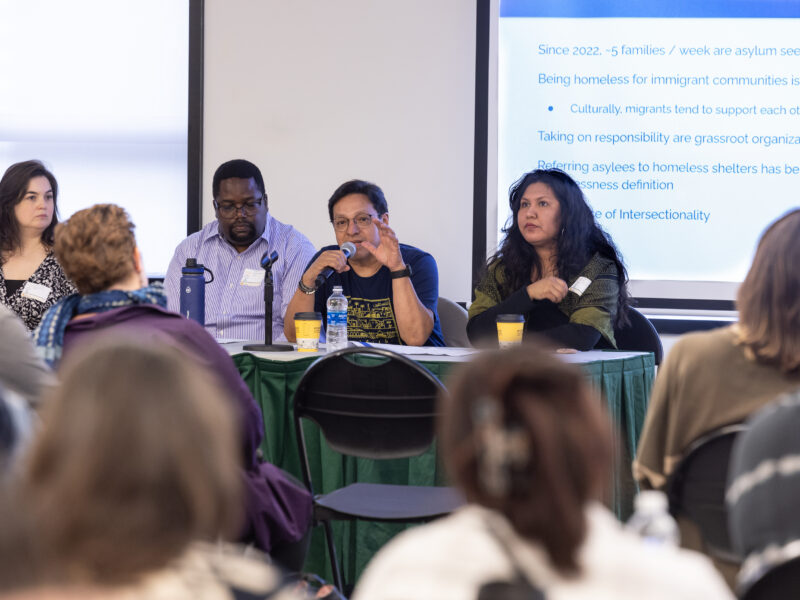
Joint Office of Homeless Services
Implementing Equity Plans
This session will hold space to explore ways that JOHS can support provider equity work plan development and monitoring, as well as identify resources to move toward our systemic equity goals
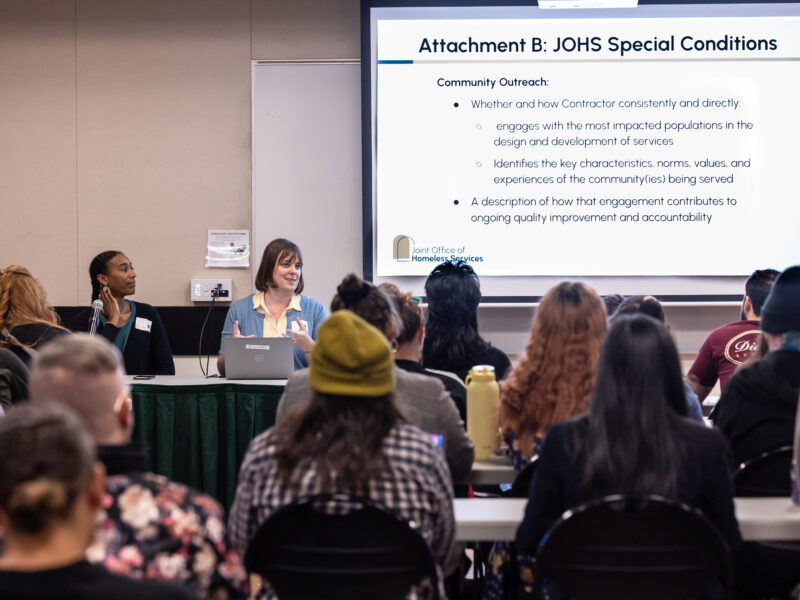
2:45 p.m. to 3:30 p.m.
Wrap-Up and Closing
Review of the day, and next steps
All Day Engagement
JOHS Tabling
JOHS Planning & Evaluation Team
Improving Shelter Outcomes
The JOHS Planning and Evaluation team would like to invite Multnomah County shelter providers to share their perspective and expertise on how emergency shelters in Multnomah County can continue to be improved.
As part of our ongoing effort to develop and maintain and nuanced understanding of the wide array of emergency shelter available across the county, our team is currently working on a report that will explore best practices and common trends in emergency shelter; examine the current state and effectiveness of local shelters; and identify areas for potential growth and improvement going forward.
This work is intended to be a complement to the current Community Sheltering Strategy, and will provide additional insight into how to best operationalize effective methods to meet the current goals. We are interested in hearing more from providers about how experiences and outcomes at shelters can be improved. A member of our team will be collecting feedback in person at the conference, and we will have a link to a digital option as well.
